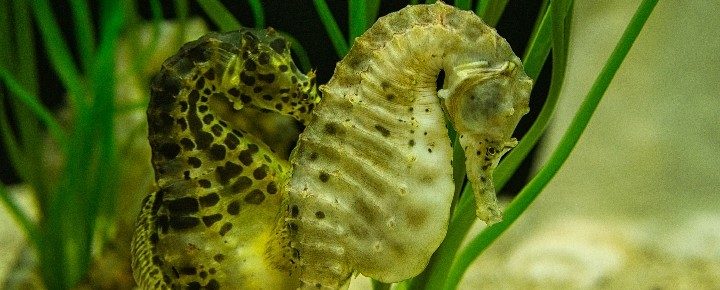Seahorses are not a regulated in Hawaii and don’t currently have legal protection. Others say this favorite Hawaii activity is gross exploitation.




Seahorses are not a regulated in Hawaii and don’t currently have legal protection. Others say this favorite Hawaii activity is gross exploitation.
This was very informative as we are looking for unusual things to do while on vacation.
I cannot support a facility that exploits living things so we ruled this one out. Perhaps another time should they change their ideals. Thank-you for sharing this information.
I was one of your original commenters. Thank you for looking into and writing about this further. I would really like to read some input from credible resources, such as marine biologists and ocean scientists. PETA is biased and of course is going to say what we all expect. I want to believe that the seahorse farm is raising seahorses for pets to prevent/discourage the poaching of wild seahorses, and to increase their lifespan in captivity. But I have to wonder just how humane and legit the farm’s breeding practices are, and just how long they live in captivity, especially if the business is for profit.
On the bright side, our visit really did perk my daughter’s interest in learning about seahorses.
Mahalo.
It’s not a “horse” people. No different then fish in an aquarium.
Mahalo Beat of Hawaii for your awesome reporting!
Personally speaking, I think it’s disgusting to allow this to continue.
Just because something isn’t endangered yet, doesn’t mean it’s fair game.
How do people think endangered species become endangered???
(Sorry, I once again put the word “think” and “people” in the same sentence.)
Keep up the awesome work.
You’re my heroes.
Aloha and blessings always 🌺
Hi Pam.
Thanks! Great to here from you. How are you feeling?
Aloha.
I think it interesting that you write an article on a seahorse place but don’t actually include any comment from the business. I visited years ago and what was shared is that it was started for concern of the seahorses in the wold and the intent was to create a ‘bank’ of safe keeping for the many species of seahorse that are being impacted by the multiple man made issues listed in your article. Perhaps including who the article is about would improve presenting the multiple perspectives on this business.
I don’t think there’s anything more magical found in the ocean than a tiny seahorse. Every 4 yr old’s dream of riding one. Lol. But do I need to hold one? No. I remember souvenir shops with dried seahorses on top of a pile of shells. Ok, they may live 3 or 4 years longer in captivity. How do we really know that? I think it’s wrong to keep them in tanks. What about diseases? People carry all sorts of germs and bacteria on their hands. Can these poor little things truly be safe? They belong in their natural habitat. So where’s the proof that they could “theoretically” be released back into the wild unscathed? Can they hunt for their own food if back in the ocean? Also, I think that charging $75 per person is highway robbery.
I went to it many years ago, as well, and while some of this article does make me consider the entire situation with a perspective I hadn’t quite thought about before. I was more or less convinced by their mission despite understanding they were a for-profit company, as opposed to a non-profit organization. I understood their position in using capitalism to try and solve a problem. They seemed like good people to me and didn’t seem like a terribly big company either, more like they had found a way to make just enough money to continue while trying to provide an alternative to just scooping them up out of the water by the thousands. That definitely did not seem sustainable. I don’t like to think about a lot of them not making it to their des
tination. That’s a little depressing and should be made better. I don’t have a problem with this line of work being regulated and I would hope the Farm wouldn’t either.
I totally respect PETA’s position and statement. From their perspective, I think they equate both the farming and the mass scooping up as basically the same. That we should basically spend energy only on stopping illegal and unsustainable collection first and foremost instead of clever ideas.
I also think, though, that they are waging a different battle, too, and that’s one of winning the hearts and minds of people through education and outreach. I still consider it an absolute highlight of my life and it changed me as a person. I fell in love with seahorses and continue
Horrifying! These fragile creatures need their natural marine environment which supports them. I don’t imagine we would see many thriving live seaweeds in home use! They are not pets for us to dominate. They are, as their name says, horses of the sea!
I visited this farm years ago and very much enjoyed the tour. I don’t think the seahorses are being exploited. It is a fascinating creature and farm and I highly recommend this tour.